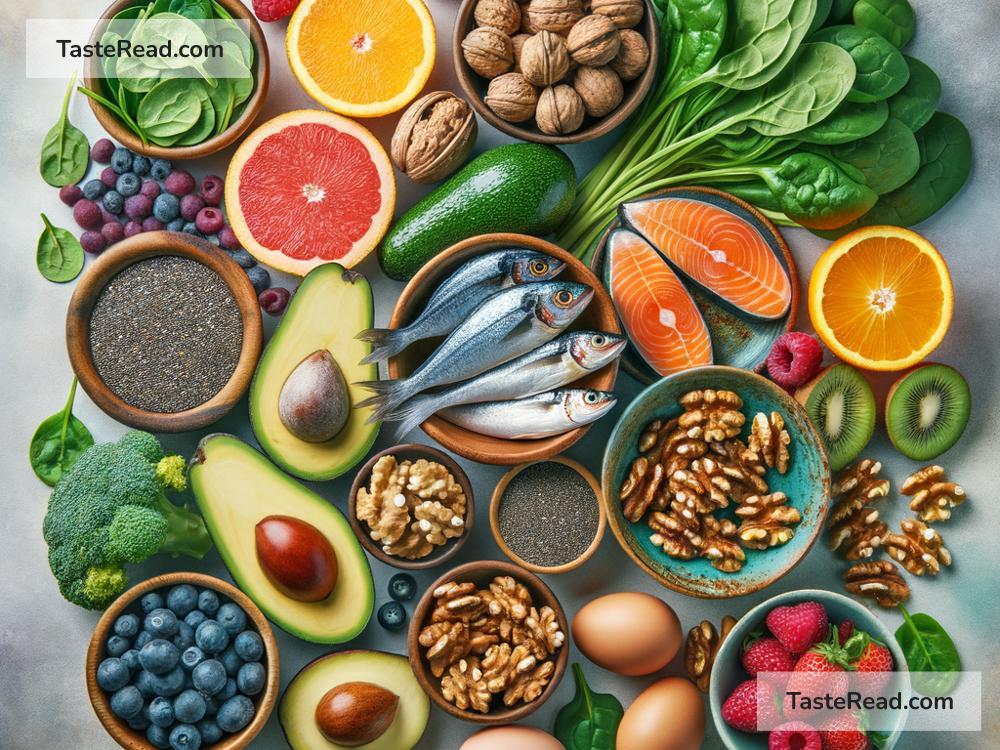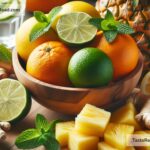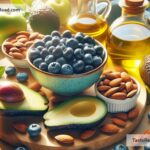Foods That Promote Scalp Health: Eat Your Way to Better Hair
Have you ever wondered why your scalp feels dry, itchy, or flaky, or why your hair isn’t as strong and shiny as you’d like it to be? The answer might not just be in your shampoo or conditioner—it could be in your diet! What you eat plays a huge role in keeping your scalp healthy and your hair looking great. In this blog, we’ll explore foods that promote scalp health and how they help you achieve a healthier, happier head of hair.
Why Does Scalp Health Matter?
Your scalp is the foundation for your hair growth. A healthy scalp is moisturized, free from irritation, and protected by naturally-produced oils. When the scalp is in bad shape—think dryness, dandruff, or excessive oiliness—it can affect your hair. You may experience thinning, slow growth, weak hair, or even hair loss.
Your scalp needs proper nutrients to maintain its health, and these nutrients largely come from what you eat. Let’s look at some foods that can nourish your scalp from the inside out.
1. Fatty Fish for Omega-3s
Fatty fish like salmon, mackerel, and sardines are rich in Omega-3 fatty acids. Omega-3s help reduce inflammation in the scalp and promote blood circulation. Good blood flow means nutrients are better delivered to your hair follicles, encouraging healthy hair growth.
Plus, Omega-3s keep your scalp’s skin hydrated, preventing dryness and flakiness. If fish isn’t your thing, try plant-based sources like flaxseeds, chia seeds, or walnuts.
2. Eggs: Protein Power
Eggs are packed with protein, which is a crucial building block for strong and healthy hair. Your hair is mostly made of a protein called keratin, and without enough protein in your diet, your hair may become weak or prone to breakage.
Eggs are also rich in biotin, a B vitamin that supports scalp health. Biotin deficiencies can lead to hair loss and can make your scalp dry and irritated. Enjoy eggs for breakfast, lunch, or in salads—they’re a versatile, hair-friendly food.
3. Spinach: Iron and Vitamins
Spinach is a superfood for your scalp. This leafy green is loaded with iron, vitamins A and C, and antioxidants. Iron ensures that your hair follicles get enough oxygen through red blood cells, promoting growth. Vitamin A helps your scalp produce natural oils (called sebum) that keep it moisturized and prevent dryness.
Not a huge fan of spinach? You can swap it for other dark leafy greens like kale or Swiss chard.
4. Avocados: Healthy Fats
Avocados are not just trendy—they’re actually fantastic for scalp health! They’re loaded with Vitamin E, which helps improve blood circulation and encourages hair follicles to work efficiently. The healthy fats in avocados keep your scalp hydrated and help in strengthening your hair strands.
Mash up an avocado to eat with toast or add it to salads and smoothies for a scalp-boosting meal.
5. Nuts and Seeds: Zinc and Selenium
Nuts and seeds—such as almonds, sunflower seeds, and Brazil nuts—are small but mighty when it comes to scalp health. They contain zinc and selenium, minerals that are vital for maintaining a healthy scalp and preventing hair loss.
Zinc helps repair damaged scalp tissues, while selenium protects your scalp from oxidative stress caused by environmental damage. Snack on a handful of nuts or sprinkle seeds over your yogurt or oatmeal.
6. Sweet Potatoes: Beta-Carotene
Sweet potatoes are a scalp-friendly food because they’re high in beta-carotene, which your body converts into Vitamin A. As mentioned earlier, Vitamin A helps your scalp produce oil to keep it moisturized. Beta-carotene also protects scalp cells from damage and helps prevent hair from becoming dull and lifeless.
Other orange-colored foods like carrots, pumpkin, and mangoes provide similar benefits.
7. Yogurt: Probiotics and Protein
Yogurt, especially plain Greek yogurt, is a great source of probiotics and protein. Probiotics help promote a healthy gut, which in turn supports nutrient absorption and scalp health. Protein strengthens hair and helps prevent split ends and breakage.
For extra scalp-friendly nutrition, top your yogurt with nuts, seeds, or fresh fruit like berries!
8. Berries: Antioxidants for Scalp Protection
Berries like strawberries, blueberries, and raspberries are full of antioxidants and Vitamin C. Vitamin C helps your body produce collagen, a protein that’s essential for keeping your scalp skin strong. Collagen also surrounds hair strands, making them less prone to breakage.
Antioxidants protect your scalp from free radicals, which can cause damage to hair follicles. Enjoy berries as a snack or add them to your smoothies for a tasty and healthy boost.
9. Whole Grains: B Vitamins
Whole grains like oats, quinoa, and brown rice contain B vitamins, which are crucial for hair and scalp health. B vitamins help transport oxygen to your scalp and improve the overall health of your hair follicles. They also prevent hair from thinning and breaking.
Swap out refined grains for whole grains in your meals to give your scalp and hair the nutrients they need.
Conclusion: Feeding Your Scalp Starts With Your Plate
Your scalp is just like the rest of your skin—it needs nutrients to stay healthy, hydrated, and strong. By incorporating these foods into your diet, you can nourish your scalp and improve the overall quality of your hair. While eating the right foods can’t fix all scalp issues (sometimes you need specialized treatments), it’s a great way to support hair health naturally.
So, next time you’re at the grocery store, fill your cart with fatty fish, eggs, spinach, avocados, nuts, sweet potatoes, and other scalp-friendly foods. Your scalp—and your hair—will thank you for it!


